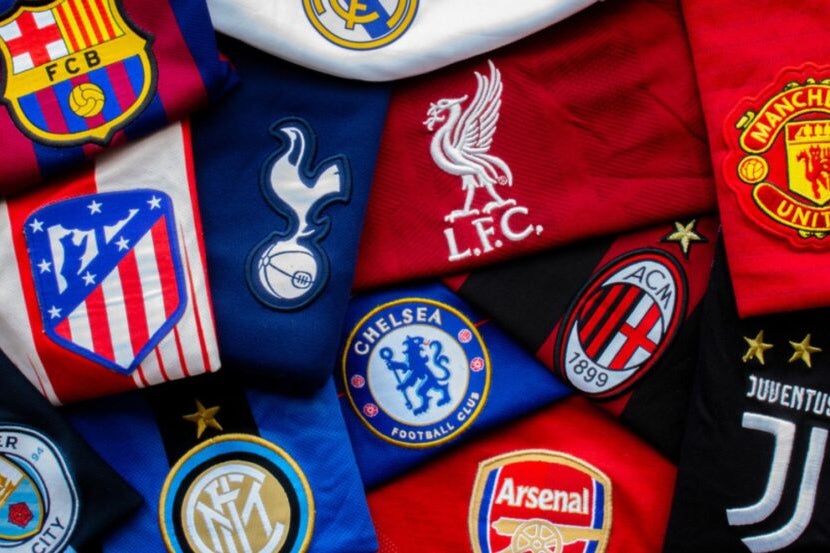The revival of travel in Europe is expected to boost Ryanair, the Irish low-cost airline.
Getty Images/NurPhoto/Nicolas Economou
Size of the text
For several European airlines, the Covid-19 pandemic changed the landscape, resulting in restructurings, public bailouts, and cost-cutting. Airlines companies may offer chances for investors now that travel in the region has begun to revive. The stocks appear to have a lot of upward potential. Year to date, the Stoxx Europe Total Market Airlines Index, which tracks the performance of European-listed airline stocks, has up 3.3 percent. In comparison, the Arca Airline Index on the New York Stock Exchange has up 21% this year, while the Stoxx Europe 600 index is up 14.2%.
A summer comeback isn’t inevitable due to the potential of viral variations, but volatility won’t change the sector’s long-term trajectory. Stocks of
British Airways is a British airline.
owner
International Consolidated Airlines Group is a conglomerate of airlines based in the United
IAG.UK (ticker: IAG.UK) is an Irish airline.
Ryanair Holdings is a company that owns Ryanair.
(RYA.Ireland), as well as
Wizz Air Holdings is a company that owns and operates Wizz Air.
(WIZZ.UK) appear to be particularly appealing. All three have low exposure to the corporate-travel industry, which is projected to stay poor even as recreational travel picks up, and each is poised to gain market share once the recovery kicks in. While IAG will profit in the long run from consolidation, Citi analysts believe that the resumption of flights between the UK and the US might be a positive catalyst for the company even sooner. High vaccination rates in both nations are expected to lead to the resumption of travel between the two countries in August, with IAG expected to be a “significant benefactor” over the next 12 months. The decision of the
Norwegian Air Shuttle is a Norwegian airline that flies to
(NAS.Norway), a competitor in the transatlantic market, has likewise restricted competition by canceling long-haul flights. According to FactSet’s survey of analysts, IAG, which also owns Spain’s Iberia and Ireland’s Aer Lingus, is predicted to generate revenue of 16.5 billion pounds sterling ($23 billion) in the fiscal year ending in December 2022. This prediction is a significant improvement above the £6.8 billion sales reported in 2020, but it still falls short of the £21.9 billion revenue reported in 2019. Despite the fact that the stock has recovered from its October 2020 low, it is still 60% behind its January 2020 high. According to FactSet, analysts have an average target price of £2.31, up 33% from the recent price of £1.74. On a first-quarter earnings call, IAG CEO Luis Gallego observed, “There is ample of evidence of high pent-up demand when and when travel is allowed.”
N/A stands for “Not Applicable.”
Budget projections for the fiscal year that ends in March 2023
Bloomberg is the source of this information.
As so-called legacy carriers, such as British Airways, struggle to compete in Europe, it may be time for low-cost airlines to shine.
Lufthansa is a German airline.
(LHA.Germany) and (LHA.France)
KLM-Air France
(AF.France) are dealing with the pandemic’s long-term effects. These airlines had a tougher time cutting costs than their low-cost competitors, sustained greater losses during the crisis, and were forced to rely on governmental bailouts, diluting existing shareholders.
Ryanair
In a letter, Third Bridge analyst Jack Winchester predicted that Ryanair and Wizz Air will “hoover up the pent-up demand for overseas holidays we’re about to witness, as constraints on international travel finally ease.” According to FactSet, analysts estimate Ryanair to earn 4.7 billion euros ($5.6 billion) in the fiscal year ending March 2022 and €8.7 billion in the fiscal year ending March 2023. The latter would outperform its €8.5 billion sales from the year ending March 2020, which includes only one pandemic-affected month. In recent months, Ryanair’s stock has risen above its pre-pandemic February 2020 highs. More wins may be on the way: According to FactSet, 71% of analysts covering the stock rank it as a Buy, with an average target price of €19.15, up 20% from the present €15.96. While Citi analysts predict Ryanair’s intra-Europe market share will increase to 18% in 2025 from 13% in 2019, Wizz Air’s market share will increase to 9% from 3% in the same time period. Wizz controls the Eastern European market, which Citi analysts predict will rise “significantly over the next few years.” They claim that the company’s continuous focus on costs allows it to compete on pricing points. Wizz Air’s stock has also risen above pre-pandemic levels, with 55% of analysts still rating it as a Buy. Their average goal price is £46.69, which is 12% more than the current price. Wizz Air carried 1.57 million passengers in June, up from 832,000 in May and more than three times the number it will carry in June 2020. When Wizz Air reported its full-year results last month, CEO József Váradi declared, “We are cautiously hopeful about the business’s comeback.” The European airline industry has yet to take off, but investors might consider jumping on board before it does./n
Read More




